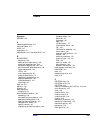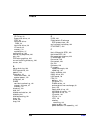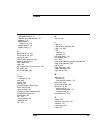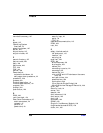
232
Glossary
organization is authorized use
See also user ID, password.
user ID The name the computer
uses to identify you. Your system
administrator assigns you a user
ID. Enter your user ID during the
login procedure when the system
displays the login prompt See
also user account.
username The name that the
system recognizes as uniquely
yours. Also known as your “login
name.” The username is also the
name that identifies you to the
mail system and other software
requiring secure entry.
utility See utility program.
utility program A program
provided with the operating
system to perform a frequently
required task, such as printing a
file or displaying the contents of a
directory See also command,
shell command.
W
window A rectangular area of the
screen for viewing information. HP
CDE allows you to create several
types of windows on the screen.
Each window is a separate
computing environment in which
you may execute programs, edit
text, display graphical images,
etc See also Workspace Manager.
Window Manager The HP CDE
program that controls the size,
placement, and operation of
windows.
working directory See current
working directory.
Workspace What the screen
becomes when you start HP CDE.
Although you can hide the
workspace under terminal
windows or other graphic objects,
you can never position anything
behind the workspace. All windows
and graphic objects appear stacked
“on top of” the workspace See
also HP Common Desktop
Environment, terminal window.
Workspace Manager The
program that controls the size,
placement, and operation of
windows on the HP CDE
Workspace. The Workspace
Manager is a special Window
Manager See also Window
Manager.
workstation A compact,
graphics-oriented computer having
high speed and high memory


















